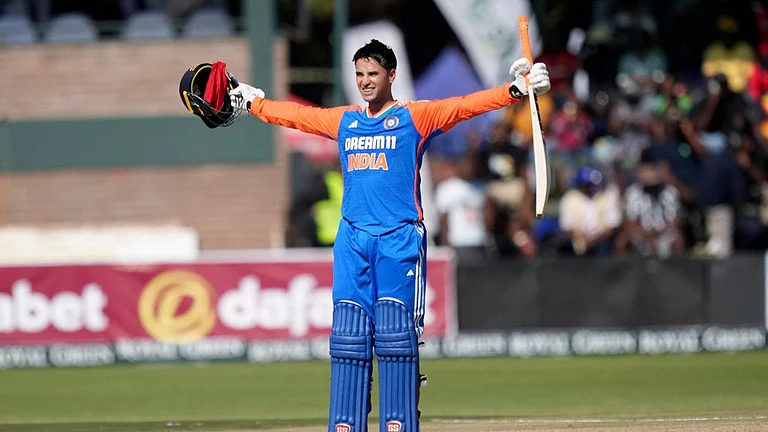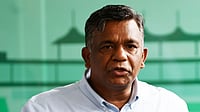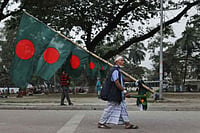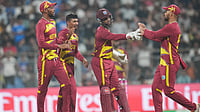Australian swimmer Emma McKeon became the Commonwealth Games' most successful athlete during a history-making night in the pool. The 28-year-old McKeon claimed her 11th career gold medal, spread across editions in Glasgow, the Gold Coast and Birmingham, to set a new Commonwealth Games mark for most titles.
It was her third gold in Birmingham, with the other two coming in the 4x100-meter freestyle and 4x100-meter mixed relays. Australian swimming celebrated again with a world record later Sunday when Maddie Wilson, Kiah Helverton, Mollie O'Callaghan and Ariarne Titmus won the women's 4x200-meter freestyle relay in 7 minutes, 39.29 seconds.
Titmus, a double Olympic gold medalist in Tokyo last year, anchored the relay with a time of 1:52.82, the quickest split in a 4x200-meter relay in history. The 21-year-old Titmus touched the wall more than 12 seconds in front of the silver medalists Canada, with England another five seconds behind in third.
McKeon's gold was part of an Australian medal sweep in the women's 50 free. She won in a time of 23.99 seconds, with teammates Meg Harris taking silver and Shayna Jack claiming the bronze.
With McKeon's parents Ron and Susie, both former international swimmers, sitting in the stands, the five-time Olympic gold medalist surpassed fellow Aussie swimmers Ian Thorpe, Susie O'Neill and Leisel Jones for most career golds at the quadrennial event.
“It is a fun event for me, the 50. I feel like I am a lot more relaxed this year than last year,” McKeon said. “I have not done as much work as I had this time last year but the place I am in mentally is showing in my performances.”
McKeon is within range of setting another record in Birmingham. She has now won 16 Commonwealth Games medals in total and has another four races on her program. South African Chad le Clos equaled the current Commonwealth record total of 18 medals earlier Sunday — a decade after causing one of the great Olympic upsets in London.
The South African swimmer timed his finish to perfection in the 200-meter butterfly in the 2012 Olympics to beat American superstar Michael Phelps by .05 seconds. Bidding to celebrate the milestone with a golden success in the same event in Birmingham, the 30-year-old le Clos led for most of the race but was reeled in late by New Zealander Lewis Clareburt.
The silver medal was enough for le Clos to join shooters Michael Gault and Phil Adams in a three-way tie for most career medals at the Games, although McKeon is closing rapidly on the trio. England took gold in the men's 100-meter breaststroke, but from an unexpected source.
Adam Peaty said his shock defeat in the final was “heartbreaking” after he finished outside the medal positions, as James Wilby claimed gold. Peaty is the Olympic champion and holds the world record, and went into the final without a loss in eight years in his favored event.
There were some dramatic crashes in London, with three cyclists hospitalized and spectators requiring medical attention when Olympic gold medalist Matt Walls and his bike slid into the stands at the Lee Valley velodrome.
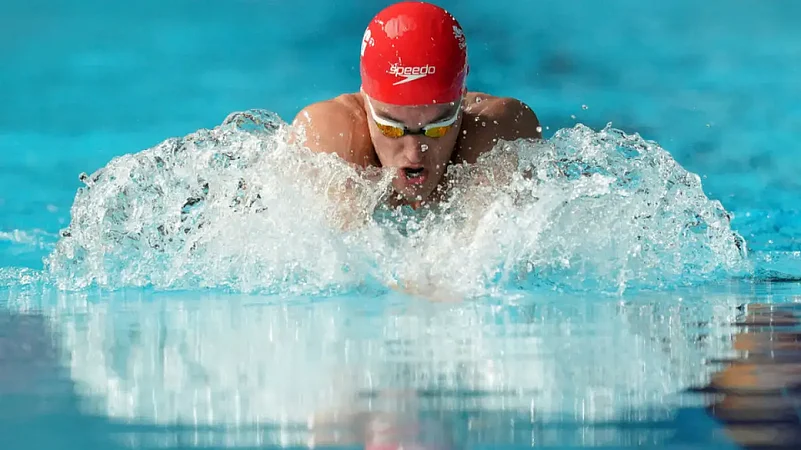
It promoted calls from champion cyclist Chris Hoy called for a design change at velodromes to prevent competitors from being catapulted into the crowd. The cycling morning session was abandoned and spectators ushered out of the velodrome as doctors treated Walls for almost 40 minutes.
The Isle of Man's Matt Bostock and Canadian Derek Gee were also taken to hospital, while it was reported that an injured fan was taken away from the scene in a wheelchair. Team England confirmed Walls was well enough to be released from hospital later Sunday.
“Following medical treatment in hospital, Matt Walls has been discharged with stitches in his forehead, scrapes and bruises, but thankfully no major injuries,” the statement said. "We send our best wishes to all other riders and spectators involved in the crash and thank the medical teams for their expert care.”
Bostock underwent scans, and a statement from Team Isle of Man said the prognosis was positive. Gee also underwent tests and has since posted social media footage of the crash. While serious injuries were avoided, six-time Olympic gold medalist Hoy said incidents where cyclists were thrown into the crowd are preventable.
“Personally, I think it's preventable if you put a plexiglass screen around, like they do in ice hockey,” he told BBC Sport. "Look at motorsport and its catch fencing and the lengths they go to to protect the crowd and also the athletes.
“All we can do is learn from mistakes and think: How can we make the velodrome safer for athletes and spectators?” After three days of competition, Australia led the medal standings with 22 gold and 52 overall. England had 11 gold, one more than third-place New Zealand.
South Africa had four gold medals, including the men's rugby sevens upset over two-time Olympic champion Fiji in the final. Canada and India had three gold medals apiece. Fiji had a shot at two gold medals in the Pacific island nation's beloved rugby format, but had to settle for a pair of silvers.
Australia, winner of the inaugural women's rugby sevens gold medal at the Olympics in 2016, beat Fiji 22-12 in the women's final. In the men's title match, South Africa raced to a 17-0 lead at halftime before finishing 31-7.







